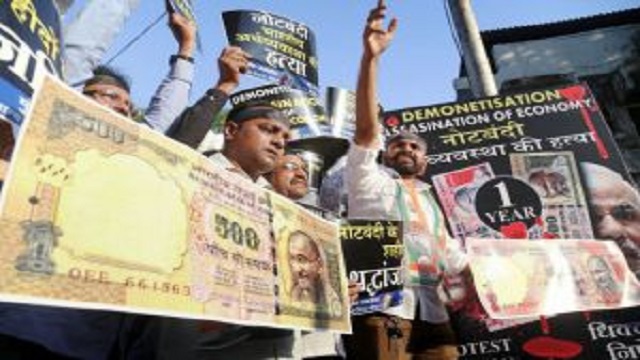Will RBI give another opportunity to exchange old notes, Supreme Court
Supreme Court on Friday asked RBI if there is possibility for people who were genuinely unable to deposit old notes during demonetisation.
The Supreme Court has asked the Reserve Bank of India (RBI) if it can consider a remedy in the case of citizens who were found genuinely unable to deposit old notes at the time of demonetisation in the year 2016.
“There must be genuine cases where a person was in a coma for six months and could not exchange her notes. Her children would not have been able to find the notes, maybe kept in a locker… In such cases, you must provide a remedy,” Justice B.R. Gavai, one of the five judges on the Constitution Bench led by Justice S. Abdul Nazeer, addressed the government, led by Attorney General R. Venkataramani.
Justice Gavai pointed to sub-sections (2) and (3) of Section 4 of The Specified Bank Notes (Cessation of Liabilities) Act, which gave the RBI discretion to independently verify applications from citizens who could not deposit their old notes within the “grace period” between November 9 and December 31, 2016.
Sub-section (2) empowered the central bank to conduct an enquiry into such applications, satisfy itself about their genuineness and credit the value of the old notes in the KYC-compliant bank account of the claimants. Sub-section (3) allowed a claimant, who was refused by the RBI, to make an appeal to the Central Board of the bank within 14 days of the communication of the refusal.
The Bench said these two sub-sections existed independent of the demonetisation notification.
Mr. Venkataramani revealed that the RBI had received 700-odd such applications under sub-section (2) but was “not in a position to accede to them”.
The top law officer said the “government is very clear that it would not like to open the window (for deposit of old notes) for any further period. He said it would create “endless uncertainty” and open a “back-door entry”. “Where will we draw the line?” Mr. Venkataramani asked the court.
“We would not like to open Pandora’s box… But there is a duty vested in you under sub-section (2)… You have a duty to verify if a claim is genuine or not. If you reject it even if the claim is genuine, then it would be an arbitrary exercise of power… That is why the provision gives you the element of discretion and is subject to your satisfaction,” Justice Gavai persisted.
The judge said the RBI could outrightly dismiss claims which were not genuine.
Senior advocate Shyam Diwan, who represented a 78-year-old petitioner who had kept ₹1.62 lakh at home while he was abroad only to find them valueless when he returned home, asked the court, “ I am not a black marketeer or a terrorist or counterfeiter… Can you imagine how many there are out there like me?”
“At a minimum, before you take away 86.4% of the value of currency, did you undertake a specific study on whether demonetisation would be the right solution for black money, terror and fake currency?” Mr. Diwan asked.
Justice Nazeer wondered whether opening a “window” for considering genuine claims would also attract fake claimants.
“My Lords, there is a presumption of integrity on the part of the average citizen. You cannot say everybody out there is a money-launderer and we are going to completely deprive people of their property and money,” Mr. Diwan responded.
Mr. Venkataramani said the government had acted against black money and fake currency. These two were problems that were until then “grinning at us and out of reach”. He said the objectives of demonetisation were met.
“You say the objectives were met but you have to show us that the procedure followed by you was right,” Justice A.S. Bopanna reacted.




 Ms Kalinga
Ms Kalinga